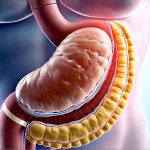The intricate relationship between what we eat, our gut microbiome, and overall health is rapidly unfolding through ongoing research. Central to this interplay are dietary fats and oils – not merely as caloric components but as active modulators of the digestive process and the bacterial ecosystems within us. For decades, fats were often demonized, leading to low-fat diets that have surprisingly coincided with increases in certain chronic diseases. We’re now understanding that it’s not about eliminating fat entirely; it’s about choosing the right kinds of fats and oils, and appreciating how they impact our gut bacteria and the crucial flow of bile, a digestive fluid essential for fat absorption and waste elimination. The quality, source, and processing methods used to create these fats profoundly influence their effects on our bodies.
The gut microbiome – the vast community of microorganisms residing in our digestive tract – is incredibly sensitive to dietary changes. Different types of fats can dramatically shift the composition and function of this microbial population. Some fats promote a diverse and beneficial gut ecosystem, while others may encourage the growth of bacteria associated with inflammation or less desirable metabolic outcomes. Simultaneously, bile acids, produced by the liver, are critical for digesting and absorbing fats, but their own journey is heavily influenced by dietary fat intake and, surprisingly, the gut microbiome itself. This two-way street – where diet impacts both gut flora and bile flow, which in turn further influences digestion and absorption – creates a complex system that dictates how effectively we utilize nutrients and maintain overall health. You can learn more about gut acidity and nutrient absorption with smart eating.
The Influence of Different Cooking Oils on Gut Bacteria
The type of cooking oil used significantly alters the gut microbial landscape. Highly processed vegetable oils, like soybean, corn, and sunflower oil, are rich in linoleic acid, an omega-6 fatty acid. While essential, excessive intake relative to omega-3s can promote inflammation and potentially disrupt gut balance. These oils often undergo extensive processing involving high heat and chemical solvents which can leave behind residual compounds that also impact the microbiome negatively. Research suggests these processes may favor less beneficial bacterial populations.
In contrast, oils with higher levels of monounsaturated fats, such as olive oil and avocado oil, appear to support a more diverse and resilient gut microbiome. Olive oil, particularly extra virgin olive oil (EVOO), contains polyphenols – powerful antioxidants that aren’t directly absorbed by the body but instead become food for beneficial bacteria in the colon. These polyphenols can stimulate the growth of Akkermansia muciniphila, a bacterium associated with improved gut barrier function and metabolic health. Coconut oil, while high in saturated fat, contains medium-chain triglycerides (MCTs) which are more easily digested and may have different effects on gut bacteria compared to long-chain fatty acids found in other oils. It’s important to consider meal texture when choosing your dishes.
The processing method also matters greatly. Cold-pressed oils retain more of their natural nutrients and polyphenols than refined oils. Refined oils often lack these beneficial compounds, offering little beyond calories. Furthermore, heating highly processed vegetable oils can create trans fats even if they aren’t listed on the label, further contributing to inflammation and gut dysbiosis. Choosing minimally processed, high-quality oils is therefore a crucial step in supporting a healthy gut microbiome. When considering cooking options, simple dishes are often easier to digest.
Bile Acid Metabolism & Dietary Fats
Bile acids are synthesized from cholesterol in the liver and play a pivotal role in fat digestion. They emulsify fats, breaking them down into smaller droplets that can be more easily absorbed by the small intestine. However, this isn’t a one-way street. The gut microbiome significantly influences bile acid metabolism through several mechanisms. Certain bacteria possess enzymes capable of modifying bile acids – deconjugating, dehydroxylating, and even transforming them into secondary bile acids. These secondary bile acids have different signaling properties than primary bile acids and can impact host health in various ways.
Dietary fats influence the production and circulation of bile acids. High-fat diets generally stimulate greater bile acid synthesis. However, the type of fat matters. Saturated fats tend to increase bile acid pool size, while unsaturated fats may promote more efficient bile acid recycling. This recycling process is crucial because it conserves energy and prevents excessive cholesterol loss. A disrupted microbiome can interfere with this delicate balance, leading to imbalances in bile acid composition which are linked to conditions like irritable bowel syndrome (IBS), inflammatory bowel disease (IBD) and even colon cancer. Understanding hormone influence can also help with digestion.
The gut’s ability to effectively reabsorb bile acids is also impacted by the fats consumed. Fiber intake plays a critical role here; fiber binds to bile acids, reducing their reabsorption and promoting their excretion in feces. This can help lower cholesterol levels but too much binding without sufficient production could limit fat digestion. Therefore, finding a balance between healthy fat consumption, adequate fiber intake, and a thriving microbiome is key for optimal bile acid metabolism and overall digestive health.
The Role of Saturated vs. Unsaturated Fats
Saturated fats have long been the target of nutritional scrutiny. While excessive saturated fat intake can raise LDL cholesterol levels (the so-called “bad” cholesterol), it’s important to differentiate between different types of saturated fats. Some, like those found in coconut oil, are medium-chain triglycerides and may be metabolized differently than longer-chain saturated fats found in animal products. Regarding gut health, high intakes of saturated fat can reduce microbial diversity and increase the abundance of bacteria associated with inflammation.
Unsaturated fats, on the other hand, generally promote a more diverse and beneficial gut microbiome. Omega-3 fatty acids, particularly EPA and DHA found in fatty fish like salmon, have anti-inflammatory properties and can positively impact gut barrier function. These fats also influence bile acid composition, potentially increasing bile acid excretion. Monounsaturated fats, abundant in olive oil and avocados, similarly support a healthy gut ecosystem and contribute to balanced bile acid metabolism. Healthy oils are key for supporting this balance.
The ratio of omega-6 to omega-3 fatty acids is particularly important. A high omega-6/omega-3 ratio – common in Western diets – promotes inflammation and can disrupt gut balance. Increasing omega-3 intake while reducing consumption of processed vegetable oils rich in linoleic acid (an omega-6) is a crucial step towards improving gut health. It’s also worth noting that the source of saturated fat matters; grass-fed animal products generally contain more beneficial fatty acids than those from conventionally raised animals. You can also consider best cooking oils for optimal digestion.
The interplay between cooking oils, gut bacteria and bile flow highlights the fact that dietary fats are far more than just empty calories. They actively participate in shaping our internal environment, influencing digestion, immunity, and overall wellbeing. Choosing high-quality, minimally processed fats, prioritizing omega-3 rich sources, and balancing fat intake with adequate fiber consumption are all vital components of a gut-friendly diet. Understanding these connections empowers us to make informed food choices that support both digestive health and long-term vitality.


















